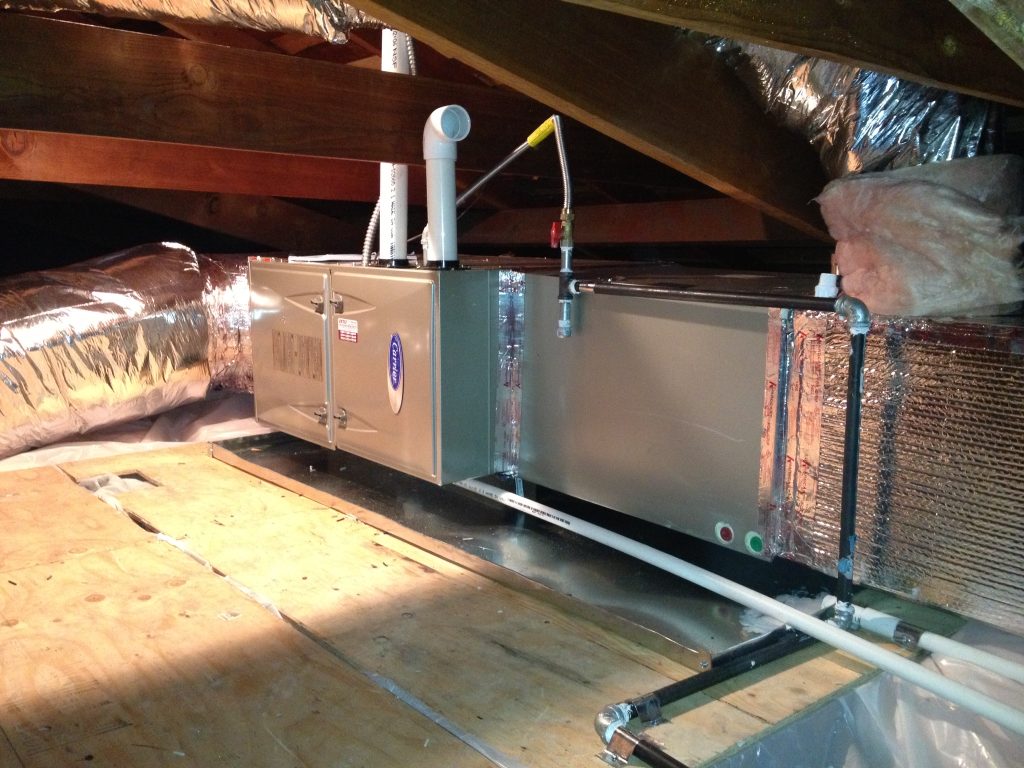
When looking for an HVAC company, trustworthiness is one of the most important attributes to consider. Photo: Ortiz Heating and Air Conditioning (2016)
With the many heating and air conditioning companies operating in the Bay Area, it’s natural to assume that some are better than others, with each possessing varying degrees of experience, organization, customer service and technological proficiency. However, when it comes to choosing an HVAC company, there’s more at stake than its level of skill or service: if you’re not careful, you could pick a fraudulent one. Like many service industries, the HVAC industry is rife with dishonest businesses out to take advantage of unsuspecting consumers.
Too outrageous to be true? Not according to Bryant Kearney, service manager at Moore Solar/Heating/Cooling, who is very familiar with the handiwork of these conniving companies. “Scams are a major problem in the HVAC industry,” he affirms. “There are companies that essentially use their service departments as lead generation machines. Their purpose isn’t to fix customers’ problems; it’s to sell them expensive, totally unnecessary solutions.”
When asked how these scammers operate, Mr. Kearney says it’s a classic case of bait and switch. “These companies send out technicians who have a pretty low level of skill in the trade but are very good at manipulation. Their real goals are to find problems, be alarmists and create crises in their customers’ minds. They’ll find something minor, such as a faulty gas valve, and tell the customer it’s a serious safety issue that requires an entire system replacement. Some of these people will even disable the unit by breaking the gas line so the customer can’t use it at all. This sounds extreme, but it’s something we see on a recurrent basis.”
Mr. Kearney explains how HVAC scammers strategically advertise to target a specific demographic: “Printed ads and coupons are the most common advertising channels these companies use. You’ll also see them advertising online, but this is much less common due to the type of customers they want to attract: older people, often senior citizens, who are more vulnerable to being taken advantage of. That’s why they focus on things like newspaper ads and Valpak coupons.”
Now that you’re aware of these HVAC scam methods, you might be wondering what the Contractors State Licensing Board is doing about this epidemic. “The CSLB is cracking down, but their resources are limited,” says Mr. Kearney. “If you have enough infractions, the CSLB can certainly revoke your license, but the problem is many of these companies have adapted to the point where they can literally shut their doors one day and reopen the next as a totally different company. They’ll keep their marketing resources and salespeople, so the only thing that changes is their name. It’s a bit of a moving target.”
For those who find themselves in a situation with a potential HVAC scammer, Mr. Kearney offers some advice. “First, if you don’t feel comfortable having that person in your home, you can simply ask them to leave. They have no authority to be in your home or touch your equipment—they’re there purely at your invitation, so there’s nothing to stop you from withdrawing it. However, if you’ve already signed a service contract, there’s another way out of the situation. By law, you have three days to revoke any contract you make with a company, so do that in writing as soon as they leave your house.” (To learn more about how to revoke a contract, click here.)
Better yet, Mr. Kearney recommends avoiding this situation altogether by choosing a reputable company. “Do your homework when looking for an HVAC company,” he affirms. “My best advice is to choose a Diamond Certified company, because all of those companies have been independently verified. Most consumer agencies’ systems can be cracked or manipulated with things like false reviews, but the Diamond Certified process is rock solid, so you can have confidence in your choice.”
To find a Diamond Certified HVAC service company in your area, visit www.diamondcertified.info.
